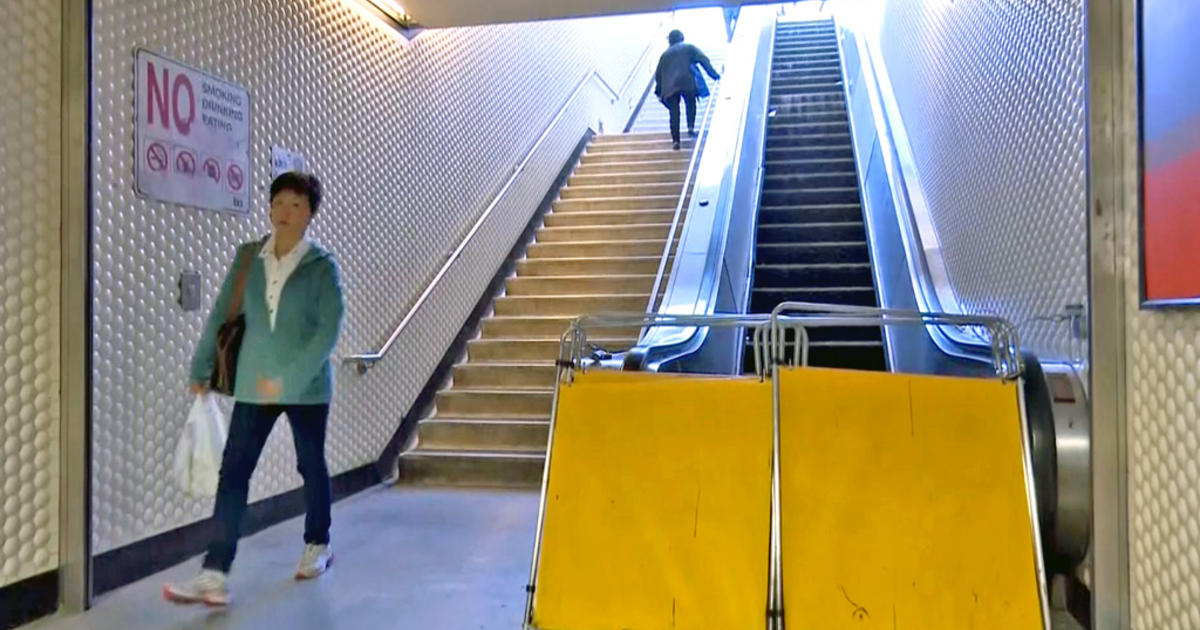California GOP Leaders Back Financial Choice Act, Rollbacks To Dodd-Frank
SAN FRANCISCO (CBS SF) -- The Financial Choice Act of 2017 passed the U.S. House of Representatives on Thursday, with the support of all 14 Republican representatives from California.
The Financial Choice Act was created with the aim of undoing much of the Dodd-Frank Wall Street Reform and Consumer Protection Act, the landmark banking law passed after the 2008 financial crisis.
The bill now heads to the Senate where it is unlikely to be passed, as the Republican majority is too slim to overcome a filibuster by Democrats.
The Financial Choice Act would eliminate the Consumer Financial Protection Bureau's ability to supervise financial institutions and limit its ability to take action against entities for abusive practices.
Fourteen of California's 53 representatives in the House voted against the bill, helping it pass the House with 233 votes in favor and 186 dissenting votes.
Read Also: Trump Moves To Roll Back Financial Regulations
Critics of the bill say it could increase the risk of another economic recession by removing consumer protections and government oversight put in place following the 2008 financial crisis.
Among the goal's of the Dodd-Frank Act was to limit taxpayer-funded bailouts of financial institutions.
But U.S. House Majority Leader Kevin McCarthy (R-Bakersfield), who is among the fiercest proponents of the bill, maintains that it is the Financial Choice Act that would end bailouts.
An outspoken Trump supporter, McCarthy states that one of his goals in office is to "free Americans from the meddlesome influence of Washington."
McCarthy argues that the bill would dismantle Dodd-Frank and with it, eliminate $10 billion in annual regulatory costs, reduce the deficit by $24 billion, and promote economic growth.
Prior to this week's House vote, McCarthy said the Financial Choice Act "will revive our community banks by removing burdens that prevent lending, and improving their access to credit and capital."
But many critics of the bill say removing protections and oversight of lending institutions would invite a resurgence of predatory lending practices and allow mortgage loans to be made to home buyers who cannot afford them.
Rep. Ed Royce (R-Fullerton) was among the 14 representatives from California who supported the bill. Speaking on the House floor Thursday, Royce said that in California small community banks and credit unions are going out of business and are "struggling under this Dodd-Frank legislation..."
He said while he thinks Dodd-Frank was well-intended, he argues that it places too much regulatory burden and costs on small financial institutions.
Rep. Steve Knight (R-Lancaster) also supported the bill, saying on Thursday, "The Financial CHOICE Act will allow small businesses to grow by expanding vital access to capital."
Knight co-sponsored a provision within the Financial Choice Act, called the Helping Angels Lead our Startups Act or HALOS, which he said aims to help small businesses by "allowing startups and investors to cut through unnecessary red tape and provide them with new opportunities to succeed."
House Democratic Leader Nancy Pelosi (D-San Francisco) voted against the Financial Choice Act, arguing that it would help "those who try to cheat consumers."
Pelosi said the financial crisis of 2008 led to over 10 million Americans losing their homes and that the Financial Choice Act would put Americans back at risk of predatory practices.
Rep. Maxine Waters (D-Los Angeles) voted against the bill, calling it "a vehicle for Donald Trump's agenda to deregulate and help out Wall Street," and arguing that it would dismantle a bureau that "has returned $12 billion to more than 29 million consumers who have been ripped off by financial institutions."
The sole House Republican to vote against the bill was Rep. Walter Smith (R-North Carolina) who said he believes it threatens to harm America's service members.
Smith said that of particular concern to him were provisions in the bill that would remove the Consumer Financial Protection Bureau's ability to regulate small-dollar loans, such as payday loans, "despite evidence of pervasive predatory practices focused on service members."
The Financial Choice Act now heads to the Republican-controlled Senate where California's two Democratic senators are expected to join their Democratic colleagues in voting against it.
However, there could be sufficient bipartisan support for a separate measure floated in the Senate Banking Committee that would relieve regulations on small banks.
U.S. Senator Kamala Harris (D-California) called the passage of the bill "disgraceful" on Friday, while U.S. Senator Dianne Feinstein (D-California) has previously described rollbacks to the Dodd-Frank Act as "dangerous."
By Hannah Albarazi - Follow her on Twitter: @hannahalbarazi.



